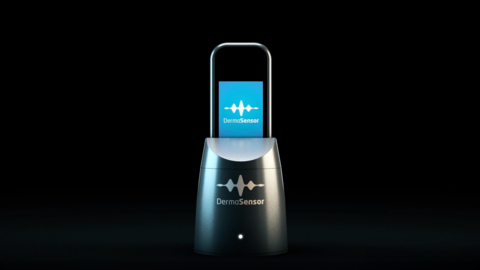DermaSensor can help clinicians more accurately differentiate between benign and malignant lesions, according to a new study in the Journal of the American Board of Family Medicine (JABFM).
DermaSensor, a handheld AI-powered elastic scattering spectroscopy device, received U.S Food and Drug Administration (FDA) clearance in January 2024.
This prospective study involved three primary care doctors in a rural setting who evaluated concerning skin lesions of 155 patients, resulting in the assessment of 178 lesions using the DermaSensor device compared to either biopsy or teledermatologist panel1:
- The DermaSensor device had a sensitivity of 90.0% and specificity of 60.7%, meaningfully outperforming the clinicians’ standard of care management sensitivity of 40.0% while maintaining a similar specificity to the clinicians of 84.8%.
- For pigmented lesions, the device specificity was 76.9%, in high concordance with the teledermatologist panel, suggesting that the device can offer both patients and clinicians reassurance when evaluating lesions of concern to patients.
- The device achieved a Negative Predictive Value (NPV) of 98.9%, indicating its reliability in negative “Monitor” results correctly being diagnosed as benign.
“In many parts of the country, a lack of access to dermatologists means that primary care physicians are often the first line of defense in evaluating skin cancers,” says study author Nathalie Zeitouni, MD, a Mohs and reconstructive surgeon at Medical Dermatology Specialists in Phoenix, AZ, in a news release. “This research shows that when patients are concerned about suspicious spots on the skin, DermaSensor accurately identifies benign lesions, which helps find malignant cases early. It also helps make sure that patients who really need to see a specialist get referred quickly, no matter how far away they live.”
“This study further shows that DermaSensor represents a significant step forward in achieving our goal of making a meaningful difference in the fight against skin cancer,” adds Gary Slatko, MD, Chief Medical Officer of DermaSensor. “We designed the device to equip healthcare providers with a tool that helps quickly assess suspicious skin lesions so patients can get the best possible care.”
The new study was part of the company’s European Union Medical Device Regulation (EU MDR) submission and was considered early effectiveness evidence for the FDA submission and labeling.


